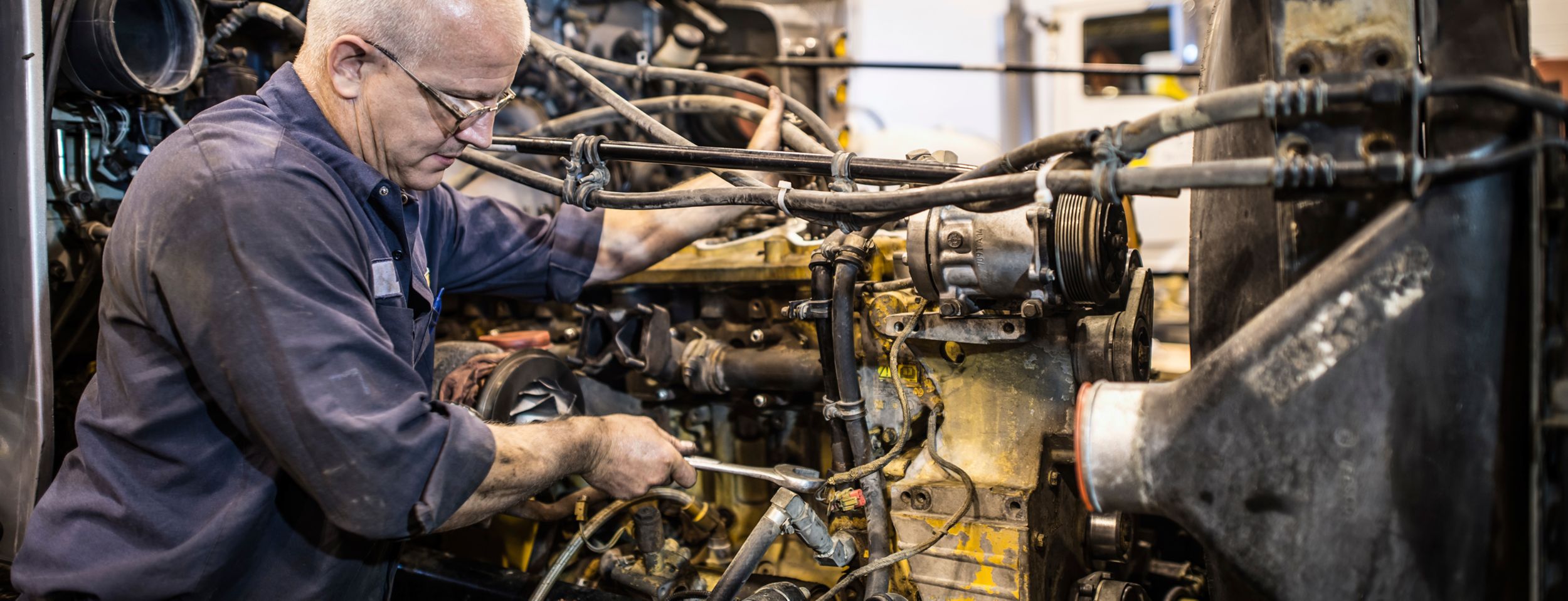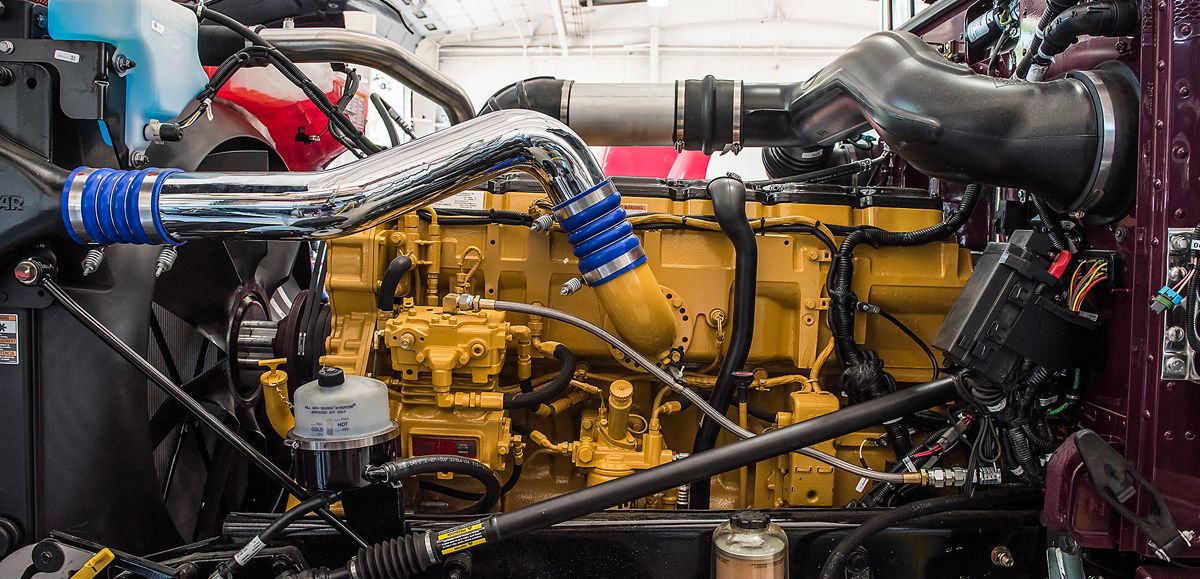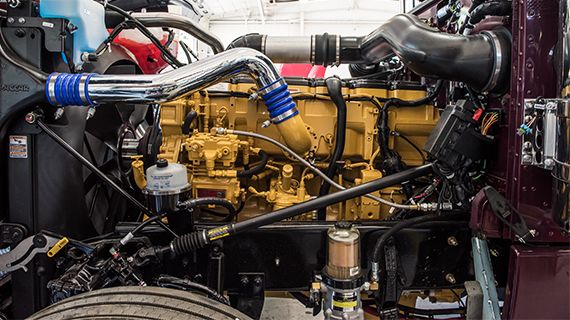If you already have an existing account with another Cat App, you can use the same account to sign in here.
One Account. All of Cat.
Your Caterpillar account is the single account you use to log in to select services and applications we offer. Shop for parts and machines online, manage your fleet, go mobile, and more.
Account Information
Site Settings
Security
10 Signs It’s Time to Service
Your Semi Truck Engine
Cat® semi truck engines have a reputation for legendary toughness. But nothing lasts forever — particularly in grueling on-highway trucking applications. After years of dependable power, time and wear will catch up to every semi truck engine. But how do you know when it’s time to repair, rebuild or purchase a Cat Reman engine?
Estimated read time: 3 minutes
A semi truck engine will let you know when its health is failing. It does this in a variety of ways. And all you have to do is be alert for signs of imminent failure so you can reach out to your local authorized Cat® dealer before an engine calls it quits.
Some issues can be resolved with a simple fix. Say you’re seeing large amounts of black smoke coming from the engine when it’s at full load. The problem could be something as simple as a clogged air filter or operating in too high a gear. But if you try simple fixes and they don’t work, the engine could be nearing the end of its useful service life.
So, with that in mind, here are 10 signs that it is time to rebuild, repair or purchase a Cat Reman on-highway truck engine for that old road-warrior truck you depend on.
You see excessive black smoke when the engine is under full load. This could be a sign that the engine’s turbocharger is about to fail. Or it could indicate that the engine’s piston rings or liners are worn out.
You see increased fuel consumption. This could be caused by malfunctioning fuel nozzles and injectors. A malfunctioning turbocharger could also be the culprit.
The engine is emitting blue smoke while running. Generally speaking, blue smoke is a sign that the engine is burning oil. The most likely causes of blue smoke are worn turbocharger seals, worn rings and liners, or worn valve guides.
The engine is emitting white smoke while running. Possible causes include a cracked head and/or bad liners. A leaking head gasket or faulty fuel injectors could also be the problem.
Increased oil consumption. If the engine is suddenly using more oil than normal, it could mean that its rings and liners are broken or worn out. Check into turbocharger seals and valve guides as well.
The engine sounds funny. If your on-highway truck engine is suddenly making unusual noises, that’s not a good sign. The sounds could indicate failing fuel nozzles and injectors, a malfunctioning turbocharger or worn piston pin bushings. The lower rod bearings could also be going out.
The engine is running hot. If the engine is overheating frequently, your valve train may be at risk of failing. Bad liners or worn gears are other possible causes.
The engine is hard to start and misses while running. Possible causes in this instance include worn piston rings and liners, a worn fuel injector pump or failing fuel nozzles and injectors.
Oil level is overfull. If you’ve suddenly got too much oil in the engine’s crankcase, the most likely cause is a blown head gasket allowing coolant to leak into the crankcase.
Metal debris in the oil filter. This is another sign that failure could be imminent. You may be facing damaged bearings. Bad fuel injectors could be leaking diesel fuel into the engine oil. It’s also possible coolant or fuel is leaking into the crankcase.
If you’re seeing any of these warning signs, consult your local authorized Cat dealer to find out what options are available. The issue might be resolved with a quick and simple fix. But if it’s time to consider other power options, Cat Reman has repair, rebuild and remanufactured selections to meet your needs.



